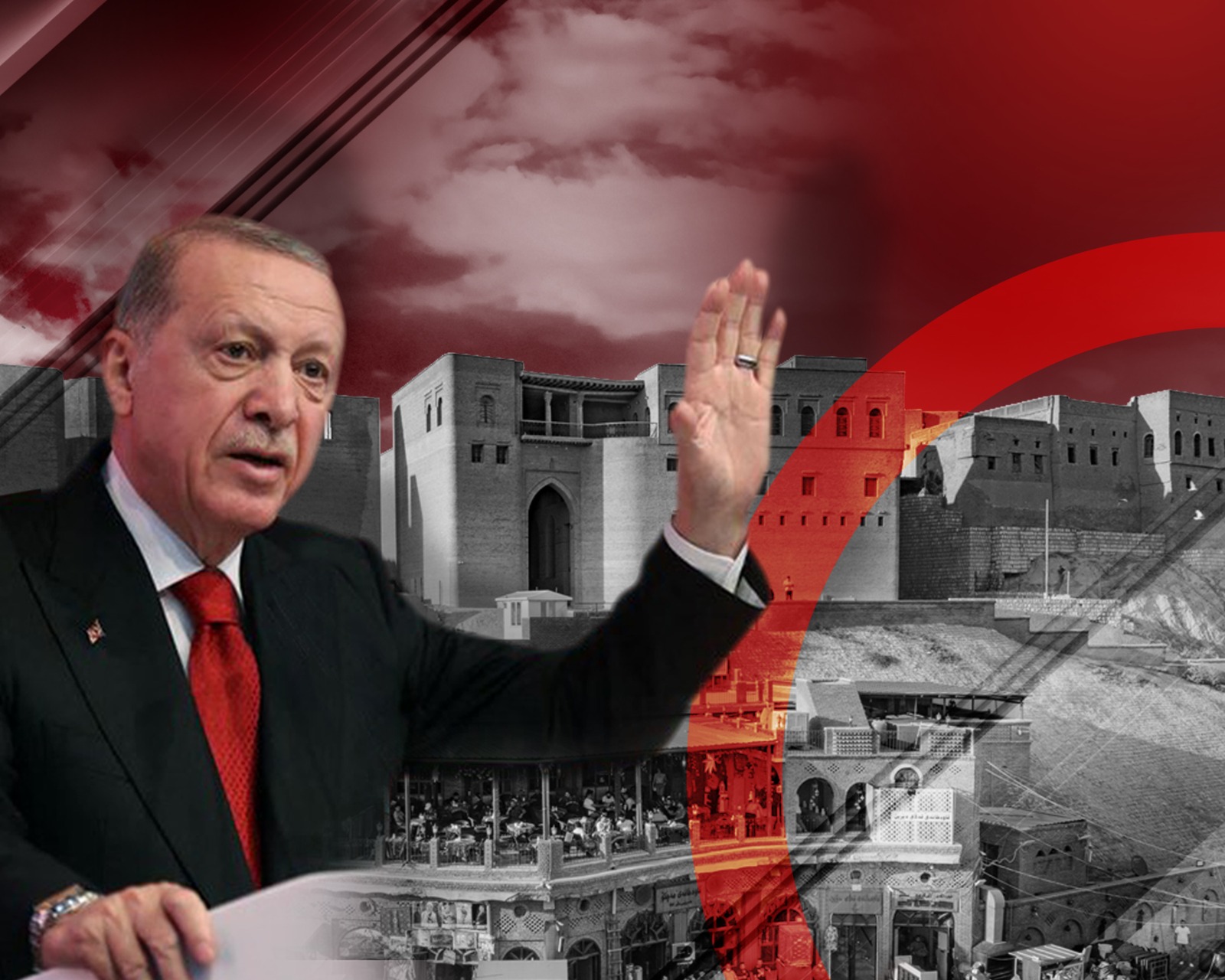RRC |
By Ziryan Rojhelati|
Introduction
The Kurdistan region is still facing ISIS threat in the west of its borders from north to south lines, in Kurdistani areas out of KRG control, as well as in the meantime face threats from those militia groups in Iraq that called to fight against America. But the third important security issue that KRG faces is due to more Turkey’s incursion and PKK deployment deeper into Kurdistan region. Other two security threats from ISIS and militias are not at the level can threaten sovereignty and existence of Kurdistan region but the third one is. There is series of border land in Kurdistan region which in some areas about 15-20km deep, is water-rich and fruitful land which as touristic-agricultural circle can play more role in KRG’s economy but now these areas are like the military base as there are many different military bases and outposts which even no longer is safe for civilians to live around there. In addition this fighting on the border areas have political and security impacts on the KRG.
What’s the solution? What KRG can do to be protected from this crossfire?
The model of Mujahedeen-e-Khalq and Fatah
Yasser Arafat (former Palestinian leader and chairman of Palestine liberation organization -PLO) in 1970 and later he had shifted its organization bases to Lebanon and continued its attacks on Israel. Eventually in 1982 Lebanon war began, when Israel invaded again for the purpose of attacking the PLO (umbrella organization of Fatah) and fighting continued block after block in Beirut, later with the mediation of peacemaker Philip Habib (Former Assistant Secretary of State for East Asian and Pacific Affairs) Habib negotiated a peace agreement that allowed the PLO to evacuate the besieged city of Beirut under supervision of peacemakers team. Then command of Fatah moved to Tripoli in Libya. About 2000km distanced from borders of Israel. After 2003 there was new situation that directly affected Mujahedeen-e-Khalq (MEK) (an exiled Iranian resistance group) which before with help of Saddam launched big military operations against Iran. According to the Geneva Convention, US protected the Ashraf camp and then disarmed them, in 2009 the camp was handed to Iraqi authority and Nouri al-Maliki (Prime Minister at that time) called MEK as terrorist group. The Iraqi court ordered to arrest MEK leader Maryam Rajavi and 39 members of the group as they been alleged that committed crime against humanity. After that rocket attacks, legal and political pressures had increased to evacuate the camp which about 100km was distance from Iranian borders, then they had moved them from the camp to Albania which 2000km is distance from the Iranian borders.
The PKK issue in Kurdistan region
Coincides with Fatah been moved from lebanon, PKK in the early 1980s deployed its first unti to Kurdistan region to establish base here. After nearly 40 years of the Fatah issue in Lebanon, now presence of PKK in Kurdistan region and Iraq is a hot issue.In fact there is unbalnced fight. According to the International Crisis Group (ICG) data from 2015 until present at least 5, 464 persons were killed in the fight between PKK and Turkey and out of this number estimaed that about 3, 393 were PKK members.[1] Now the geography of the battle has changed and moved more to the south and west of Kurdistan areas. In addition to that if the main strategy is to democratize Turkey or find political solution with no entity, then might be there is no excuse to continue the fight and add more casualties. This means Abdullah Ocalan’s previos words were right when said now is time for the new era.
The model and expereince of Fatah and MEK it brings wining-wining situautin for Turkey, PKK and Kurdistan region. With consideration of imbalance in power and fight, continuation of the situaiton will increase number of casualties and destabilize Kurdistan region as well. Therefore similar solution that been used for Fatah and MEK might be is right for PKK as well. This means transfer them to the third country will make strategic change from the armed struggle to political action and to be protected according to the Geneva conventions. As expelling Fatah did not end the movement from political balance of Palastine, and moving MEK from Iraq did not end their role either. So similar like these two examples expelling PKK may not lead to end their levergae in the Turkish policy. In the meantime moving Fatah and MEK was suited solution for an armed group for Lebanon that was in internal complicated condition and for Iraq which the Iranian influence has increaed. If this solution applied on the PKK can be important for Kurdistan region as faces several political and security issues.
Although Turkey’s official attitude might be is different but moving out PKK from the borders is also good solution for Ankara, if its main goal is to fight PKK. Because at least Turkey will get rid of the security threat from its borders, therefore is not likely that Turkey stand against such initiative very openly.
The Kurdistan region presidency is perfect institution to propose this initiative with the parties, Iraqi government and UN envoy which one of the key tasks of UN mission is the regional talks for stability in Iraq and borders[2].
[1] https://www.crisisgroup.org/content/turkeys-pkk-conflict-visual-explainer
[2] https://www.uniraq.org/index.php?option=com_k2&view=item&layout=item&id=110&Itemid=207&lang=ar






